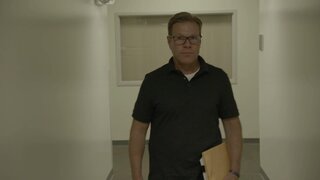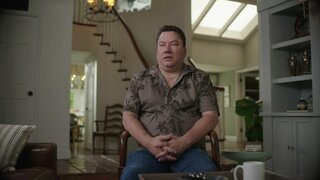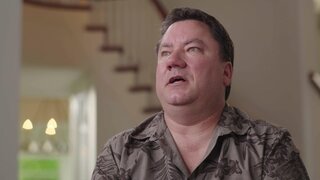Create a free profile to get unlimited access to exclusive videos, breaking news, sweepstakes, and more!
How Two Cellphone Employees' Murders Revealed A Large Cross-Country Drug Operation
The 1994 kidnapping of an informant tied to a relatively small New York drug bust opened the floodgates to the kidnappings and murders of two California men.
ATF agents conducting a videotaped surveillance operation in Queens, New York intercepted a kidnapping on Jan. 18, 1995. Put in place for a relatively minor drug bust, one of their confidential informants was forced into a car at gunpoint.
But it was only after the thwarted abduction that the informant told agents they might want to look into the murder of Peter Kovach, a name unfamiliar to agents.
Three months earlier, patrol officers in Torrance, California, pursued a Buick for suspicious activity at Galleria Telecom, a cell phone retailer, at around 9:00 p.m. The driver tried to flee the scene, but police stopped them, finding Ruben Hernandez, Kenneth Friedman, and Juan Galindo. Duct tape and two loaded handguns were also found with the men, leading to their arrest.
“We had the area canvassed to see if any crimes were committed that night — nothing,” Torrance Police Detective James Cook told Blood & Money, airing Saturdays at 9/8c on Oxygen. “I thought that they had prevented a robbery from occurring that night.”
The men — all three of whom were from New York — made bail the following day, thanks to fast-talking New York attorney Gary Friedman, the brother of Kenneth Friedman.
Two weeks later, on Oct. 26, 1994, police were called back to the Galleria Telecom, finding co-owner Peter Kovach, 26, and new employee Ted Gould, 29, missing from the store. Investigators found no outward signs of robbery or what would make the two men suddenly disappear.
Detective Cook called one of the investigators on the missing men’s case, Torrance Police Detective Jeff Lancaster, and alerted him to the arrest of the three suspicious men just weeks earlier.
“It could have been a coincidence, but I don’t think so,” said Lancaster.
Investigators looked into the suspects, taking a closer look at Kenneth Friedman’s defense attorney brother, Gary, a wealthy man at the center of a money laundering investigation by the IRS. But nothing seemed to definitively connect the Friedman brothers, Hernandez, or Galindo to the two missing men.
Then, on Oct. 31, 1994, Kovach and Gould’s decomposing bodies were found in a San Diego County alleyway. Both had been strangled to death.
Detectives couldn’t locate the three suspects, Friedman, Hernandez, and Galindo, and Friedman’s attorney brother, Gary, refused to cooperate. Few leads would develop until January 1995, when ATF agents in New York City foiled the kidnapping of their confidential informant, Bruce Wolofsky.
Wolofsky’s thwarted kidnapping was ordered by Gary, who also appeared in the video-taped surveillance.
“He was kidnapped that day by Gary Friedman because he had borrowed $10,000 and was not paying him back the money,” said ATF Special Agent Robert Schmitt. “Previously, he had tried to get himself out of debt. Bruce [Wolofsky], being in the car business, had access to credit bureau checks on people to try and ascertain their whereabouts. Gary had asked him to run some credit bureau checks on Peter Kovach.”
One of the California murder victims was now connected to the suspects in New York.
Investigators soon connected Gary to a Florida business partner named Howard Bloomgarden, both operating a handful of East Coast nightclubs that weren’t “exactly on the up and up,” according to Det. Cook. Bloomgarden was described as a flamboyant man in his 20s who came up in Florida and attended the University of Miami.
“Hold on a second,” Schmitt realized. “Peter [Kovach] actually went to college down in Miami.”
The federal informant, Wolofsky, claimed New Jersey native Peter Kovach and Howard Bloomgarden had a long history of selling drugs together after meeting in Miami. They may have started small, but it wasn’t long before the two young men were selling hundreds of pounds of marijuana and becoming more organized, according to Det. Lancaster. Investigators subsequently uncovered an international drug operation with drugs from the Mexican cartel traveling north of the border into California, Florida, and New York.
Bloomgarden and Kovach started raking in millions of dollars, prompting them to wash their money through Gary Friedman’s clubs.
Kenneth Friedman was his brother, Gary Friedman’s, strongman, and “had a reputation of being a bad guy, somebody to be avoided,” according to Agent Schmitt.
But what could have been the motive behind the murders of Kovach and his coworker, Ted Gould?
According to Agent Schmitt, Bloomgarden’s crew previously outfitted an RV for Kovach to transport 800 pounds of marijuana from the West Coast to the East Coast, cargo worth between $250,000 and $500,000.
“When they’re in Illinois, though, they get stopped, and the Illinois State Police find the drugs, and they seize the whole thing,” said Schmitt. “That’s what led to the riff between Peter [Kovach] and Howard [Bloomgarden].”
Bloomgarden believed Kovach had something to do with the seizure, and soon, Kovach returned to California to try and get his life on track. He hoped to put the drug business behind him and make a straight-and-narrow path for his life. Bloomgarden, however, still held a grudge.
As for Kovach’s coworker, Ted Gould, investigators didn't believe he had any involvement in the drug business but was merely someone who was at the wrong place at the wrong time when Kovach was killed out of revenge.
Back in New York, on March 12, 1995, authorities arrested the Friedman brothers, Galindo, and Hernandez on federal kidnapping charges related to the New York drug bust. They opted to wait to arrest Bloomgarden so they could build a stronger case against him.
“We were starting to focus on Howard Bloomgarden,” said Schmitt. “But we didn’t want to arrest him and have him get cut loose because we knew he’d come with expensive attorneys who would get him out if the case wasn’t good, or even if the case was good.”
Back in California, investigators wanted the men for the double homicide but would have to wait until federal proceedings wrapped in New York.
In the meantime, California investigators set their sights on a San Diego man named Gus Malave, who admitted to helping with the drug operation by transferring money from the West Coast to the East Coast. Officials brought him in for a polygraph test.
“He constantly minimized his own involvement,” according to Schmitt. “He was deceptive, but he did tell us a lot of things.”
Malave claimed Kenneth Friedman, Galindo, and Hernandez kidnapped Kovach and Gould and brought them to a local motel room, where the men had been staying. Friedman, whom Det. Lancaster referred to as “a wild card,” strangled both men to death before the Friedman brothers gave Malave cash to dispose of their bodies.
But would Malave’s statements be enough for Los Angeles County prosecutors Geoff Lewin and Dayan Mathai to file murder charges?
“How are we going to prove that Howard [Bloomgarden] was on the East Coast ordering Kenneth Friedman to kill these guys on the west coast?” said Mathai.
“According to Gus Malave, Howard Bloomgarden had gotten on the phone and said, ‘kill them,” said Lewin.
Bloomgarden, still in New York, was brought in for questioning, later admitting to running a $7 million-a-month drug operation when at its peak, according to Mathai. But following the Illinois drug seizure, Bloomgarden began losing more and more money until he found himself in debt.
Lewin said Bloomgarden admitted to kidnapping but denied telling anyone to kill Kovach and his coworker, as Malave had told authorities. Bloomgarden claimed Kenneth Friedman made the decision on his own to kill the two men.
Officials arrested Bloomgarden in New York on federal charges of racketeering and kidnapping. Like the other suspects, he would have to see his federal case through before West Coast officials could charge him in connection with their double homicide.
In July 1996, Bloomgarden came to a federal plea agreement — unrelated to pending homicide charges in California — admitting in open court that he approved and financed the Kovach and Gould murders. As part of a plea deal, he was slapped with a 34-year prison term.
The Friedman brothers were also found guilty of the federal charges in New York and sentenced to life. Galindo, Hernandez, and Malave all pleaded guilty to lesser charges.
In 2005, nine years after the federal conviction, California prosecutors — unsatisfied with the 34-year sentence — had Bloomgarden brought to the West Coast to face murder charges. And although he’d admitted in New York that he had Kovach and Gould murdered, a judge wouldn’t allow the confession as a means to charge Bloomgarden with murder at the state level, claiming no attorney would have allowed the federal plea if knowing a potential capital case awaited him in another state.
“That was very scary in a case like this where the puppet master putting it all together could walk on the case,” said Lewin. “It was devastating to the case. I may not get a conviction.”
While strategizing how best to charge Bloomgarden with homicide, the Friedman brothers were also brought to California to face murder charges. Both men were convicted, with Kenneth Friedman sentenced to death and Gary Friedman sentenced to life without the possibility of parole.
Kenneth Friedman took his own life while sitting on death row.
After years of delays, Lewin unearthed mitigation letters connected with Bloomgarden’s 1996 federal charges, each from five family members scattered around the country pleading for a better deal in New York. In 2014, a task force called “Operation Bloomgarden Family” was created, with officials assigned to approach each of the five relatives simultaneously in different states to deter the family members from alerting one another.
It seemed to be a dead end, with no one speaking up about what they knew, until one task force member contacted Lewin. The law enforcer stated that when visiting Bloomgarden’s sister, her boyfriend, George Kuney, wouldn’t stop talking in the background.
Lewin heard a recording of Kuney saying, “He [Bloomgarden] was sick about what had happened… he was guilty.”
“I was sort of in shock because all of a sudden, I had everything I’d hoped to get,” said Lewin.
It was enough to finally charge Bloomgarden with murder.
Ruben Hernandez, one of the men present for Kovach and Gould’s murders, would be a key witness.
Hernandez testified that he, Kenneth Friedman, and Juan Galindo kidnapped the victims and brought them to the motel, where Friedman proceeded to beat Kovach, demanding Bloomgarden’s seized drug money. Hernandez admitted to sitting on Kovach’s back while Friedman strangled him with a telephone cord.
Gould, with a pillowcase around his head, heard Kovach’s murder before he, too, was strangled. Aligning with Bloomgarden’s previous New York confession, Hernandez said Bloomgarden ordered the men’s deaths over the phone.
Bloomgarden was found guilty of murder and sentenced to life without the possibility of parole.
Gould’s close friend, Paul Poduska, spoke to producers about the gravity of reading his victim impact letter to the court.
“I pretty much broke down in tears on the stand about how much I miss my friend,” said Poduska. “It’s difficult to think of somebody that was so vibrant, so happy-go-lucky, being murdered. He deserves to be remembered fondly.”
Bloomgarden remains in prison and continues to try to have his conviction tossed.























